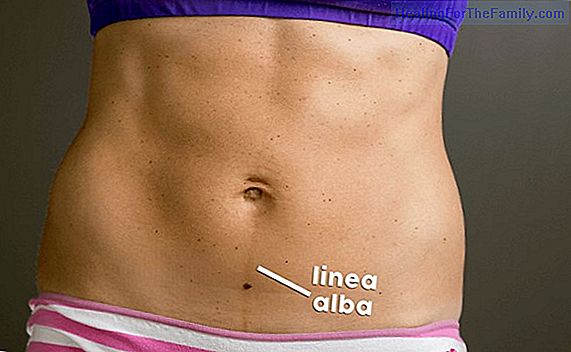Questions and answers about baby colic
It is normal for a healthy baby to cry for two hours or more a day. Pediatricians say that a baby has infant colic when he shows intense crying at least 3 hours a day, 3 days a week for at least 3 weeks in a healthy, well-nourished baby. It is worrisome for parents that the baby cries so much, unabl
It is normal for a healthy baby to cry for two hours or more a day. Pediatricians say that a baby has infant colic when he shows intense crying at least 3 hours a day, 3 days a week for at least 3 weeks in a healthy, well-nourished baby. It is worrisome for parents that the baby cries so much, unable to comfort him, but at the same time it is very common since up to 25% of babies have these cramps, which occur in the first three months of life. It usually appears after 15 days of life, being very frequent around a month and a half and resolving towards 4 months of age.
Doubts and solutions about baby colic
What is the cause of infant colic?

The cause of infant colic is not well understood, different explanations have been postulated. They can be influenced by psychological and social factors, such as excessive stimulation of the baby, an exaggerated or anxious response to their crying, constant changes in the daily routine, as well as fatigue and inexperience of the parents. On the part of the baby there may be a hypersensitivity to certain stimuli.
Digestive causes, such as the own immaturity of the digestive system of the babies , are also very easy for the muscular fibers of the intestine to contract, generating painful cramps and difficulty in expelling the gases. They can influence alterations in the intestinal bacterial flora or the presence of constipation.Regarding diet, there are few differences between the type of lactation, although with breast milk are somewhat less frequent. The allergy to cow's milk proteins can be the trigger for colic in a small part of the cases, which would be improved by using a special milk formula or by removing milk from the mother's diet if she receives it. breastmilk.
How are infant colics?
They are attacks of sudden onset crying, especially during the afternoon and night, they can last from minutes to several hours. The baby usually
shrugs the legs on the abdomen and closes the fists , staying vigorous and with the face reddened by the effort. When the crying subsides, it returns to find a normal appearance.How are they diagnosed?
Normally no diagnostic test is necessary, since the diagnosis is given by the characteristic cry associated with a normal examination of the baby. The pediatrician will rule out other causes of pain with the examination. In the exploration other causes that can cause pain (a blow, otitis, etc.) are looked for. If the child is very decayed or with a fever, other problems such as infections or intussusception should be ruled out.
What can I do?
There are no universal remedies for infant colic. It is important to understand that
is a benign disorder that ends up disappearing on its own over time (it rarely lasts beyond 4 months of age) and in which the family must arm themselves with patience. Your pediatrician will help you rule out that the crying is due to another type of problem or illness, but it is difficult to find an effective and rapid solution as everyone would like. The first thing, after checking that the baby is clean and not hungry, is to take the child in his arms to comfort him, looking for the position in which he is calmer (face up or down, horizontal or vertical, with arms or over his chest, etc.) trying to transmit tranquility. A gentle massage on the back or abdomen can help. If it calms down, do not be afraid to spoil it, as it is natural for a small infant to seek contact with their parents and that will not prevent them from becoming more independent afterwards. Some
are more comfortable wrapped in a blanket and in close contact with their caregiver , while others prefer to be freer. Sometimes the crying calms down gently, swinging in a hammock or taking a stroll in your stroller or car.If the baby takes the shots avidly, he may swallow a lot of air
. To help eliminate gas, remember to hold it a few minutes after taking it vertically so you can expel it by belching. If you drink breast milk, it is important to make sure that the baby empties one breast well before changing it to the other, because the milk that comes out when completely emptying the breast is richer in fat and energy, so it satisfies hunger better. Before making changes in the diet it is advisable to consult with your pediatrician. Some cases may be due to an intolerance to the proteins of cow's milk, in which case they improve rapidly by removing the milk from the mother's diet (if she breastfeeds) or using special milk formulas.Frequent and prolonged crying of a baby can significantly alter family life, as tiredness and worry gradually accumulate. That's why
it is important to take into account the necessary rest of mothers and fathers , relevándose in their care, seeking support from a family member and even taking a day of 'vacation' in the care of the baby.Although there are various medications and parapharmacy products marketed for infant colic, its efficacy is more apparent than real, similar to that achieved using a placebo, because colic also breaks down and eventually disappears on its own. The same can be said of infusions or homeopathic products. Some natural plants, such as star anise, can be dangerous, because when administered in excess they cause serious poisoning.
What are the consequences?
Fortunately, despite all the worries it can generate, infant colic is a benign disorder that disappears by itself only after the first months of life and that does not produce sequels in the child.












